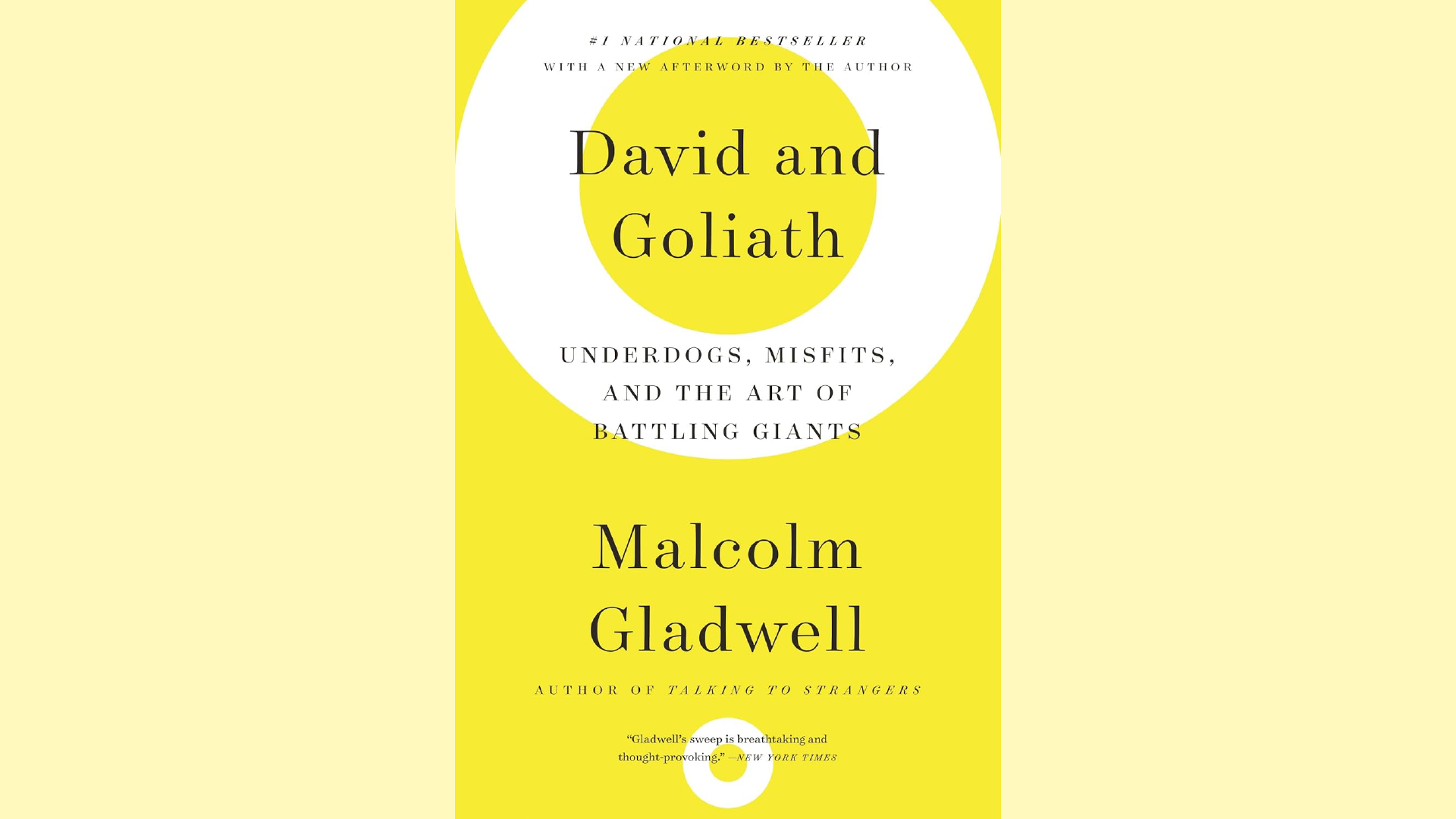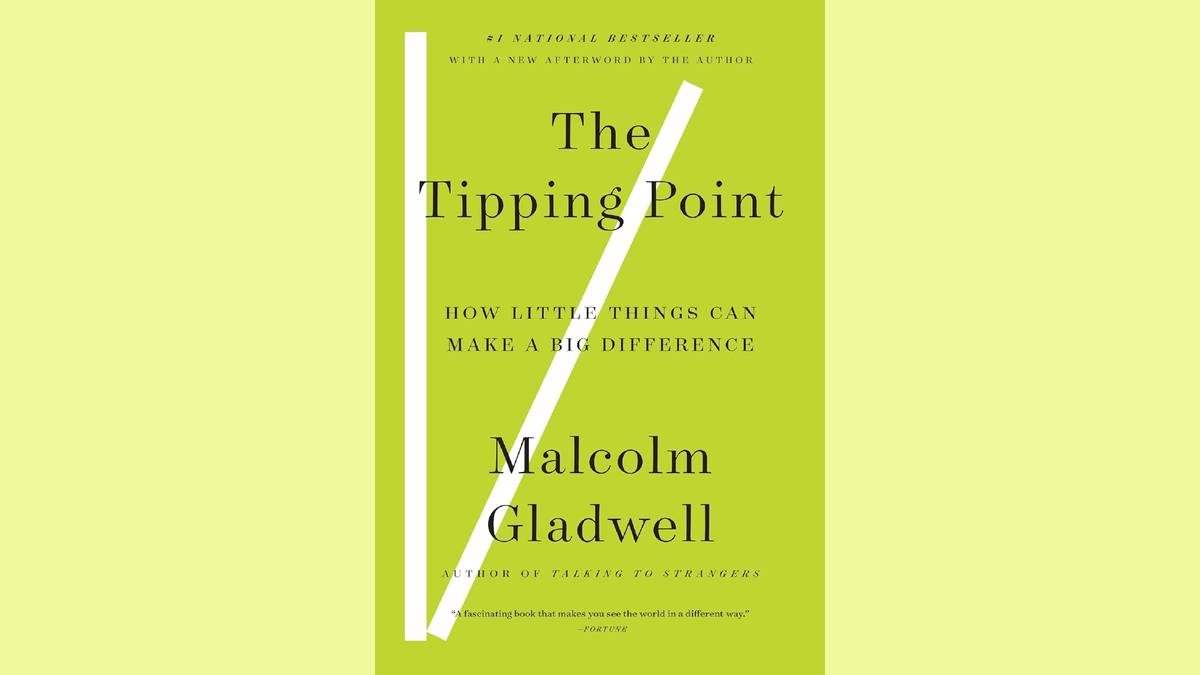Profit From Being An Underdog And Be Competitive
By applying these strategies, entrepreneurs can transform their greatest challenges into opportunities. The key is to think like David, leveraging agility, innovation, and strategic thinking to conquer Goliath-sized challenges.

In business, being the underdog isn’t always a disadvantage. It can be a catalyst for innovation, agility, and unexpected success. Drawing insights from Malcolm Gladwell’s “David and Goliath: Underdogs, Misfits, and the Art of Battling Giants,” this post explores how perceived weaknesses can be turned into formidable strengths. We look at three companies - Apple, Netflix, and LEGO - that faced seemingly insurmountable challenges but emerged victorious by adopting David's unconventional wisdom.

Apple Inc.: Simplify and Innovate
In the late 90s, Apple Inc. was on the verge of bankruptcy, a giant faltering under its weight. The company’s turnaround is one of the most spectacular in business history, and Steve Jobs’ return spearheaded it. The lesson here is clear: radical simplification and a relentless focus on innovation can lead to unprecedented success when faced with overwhelming challenges.
“The fact of being an underdog changes people in ways that we often fail to appreciate: it opens doors and creates opportunities and enlightens and permits things that might otherwise have seemed unthinkable.” - Malcolm Gladwell.
Apple streamlined its product line, focusing on a few essential products that were meticulously designed and easy to use. This simplicity, combined with bold innovation (like the introduction of the iMac, iPod, iPhone, and iPad), propelled Apple from the brink of failure to become one of the most valuable companies in the world. For entrepreneurs, Apple’s journey underscores the power of focusing on core strengths and being fearless in innovation.
Netflix: Pivot with Purpose
Netflix started as a DVD rental service, a model that became obsolete with the rise of digital streaming. Instead of clinging to the past, Netflix embraced change, transitioning to a streaming service ahead of its competitors. This strategic pivot demonstrates the importance of adaptability and the willingness to disrupt oneself before others do.
“Giants are not as strong as they seem. And sometimes the shepherd boy has a sling in his pocket.” - Malcolm Gladwell.
By investing in streaming technology and original content, Netflix didn’t just survive; it thrived, fundamentally changing how people consume media. Entrepreneurs can learn from Netflix’s foresight and flexibility. In an ever-changing market landscape, being willing to pivot and innovate can secure survival and dominance.
LEGO: Embrace Your Core
In the early 2000s, LEGO faced a financial crisis due to overexpansion and losing focus. The company’s return to profitability and popularity was based on a seemingly counterintuitive strategy: focusing on the simple, traditional LEGO brick. LEGO’s resurgence teaches us that embracing core strengths and innovating within that framework can lead to a powerful comeback.
“There is a set of advantages related to material resources, and there is a set that comes from the absence of material resources—and the reason underdogs win as often as they do is that the latter is sometimes every bit the equal of the former”—Malcolm Gladwell.
LEGO capitalized on its uniqueness, leveraging licensing deals and entering digital gaming while centering the humble brick. For entrepreneurs, LEGO’s story is a reminder that innovation doesn’t always mean reinventing the wheel. Sometimes, it means exploring new dimensions of what you already do best.
Embracing the David Strategy
Apple, Netflix, and LEGO's stories embody the essence of Gladwell’s “David and Goliath”—that the underdog’s weaknesses can be transformed into strengths with the right strategy. These companies demonstrate that agility, innovation, and a deep understanding of core strengths are invaluable assets in the battle against giants.
Entrepreneurs facing daunting challenges can draw inspiration from these titans. Like David, the key is to play to your unique strengths, adopt unconventional strategies, and never underestimate the power of being an underdog. In the business battlefield, it’s not always the strongest who prevail but those who adapt, innovate, and fight smart.
Remember, giants may be mighty, but Davids are unstoppable.
Turning Challenges into Opportunities: A Practical Guide for Entrepreneurs
- Embrace Your Underdog Status: Use your position as an underdog to your advantage. Underestimation by competitors can give you the element of surprise. Remember, constraints foster creativity and innovation.
- Focus on Your Core Strengths: Identify what you do best and double down on it. Simplify your offerings and make your business stand out by being exceptionally good at a few things rather than mediocre at many.
- Be Willing to Pivot: It is crucial to adapt and change direction when the market demands it. Stay attuned to industry trends, and be prepared to disrupt your business model before someone else does.
- Invest in Innovation: Continuous improvement and innovation should be at the heart of your strategy. Whether it’s product development, customer service, or marketing, always look for new and better ways to do things.
- Use Strategic Partnerships: Collaborate with other businesses to expand your reach and capabilities. Partnerships can provide access to new markets, technologies, and resources.
- Engage Your Community: Build a loyal community around your brand. Engaged customers can provide invaluable feedback, advocate for your brand, and help drive growth.
- Keep Learning: Stay curious and always be learning. Understanding your industry, competitors, and customers deeply can reveal opportunities and threats you might not have otherwise seen.
By applying these strategies, entrepreneurs can transform their most significant challenges into their most important opportunities. The key is to think like David, leveraging agility, innovation, and strategic thinking to conquer Goliath-sized challenges.

Surprising Insights: Malcolm Gladwell's "David and Goliath"
Malcolm Gladwell's "David and Goliath" is a treasure trove of unexpected revelations, challenging the status quo and offering fresh perspectives on the dynamics of power and adversity. Beyond the classic tale of the underdog triumphing over the giant, Gladwell uncovers surprising insights illuminating the art of battling giants in our lives.
The Paradox of Effort:
One of the most surprising insights from "David and Goliath" is the paradox of effort. Gladwell suggests that excessive effort can sometimes be counterproductive, leading to diminishing returns. He illustrates how striving too hard can close our eyes to alternative strategies and solutions. Instead of mindlessly exerting ourselves, Gladwell encourages us to work smarter, not harder. We can achieve tremendous success with less strain by finding the right balance between effort and efficiency.
The Limitations of Power
Contrary to conventional wisdom, Gladwell challenges the notion that power always leads to victory. He explores cases where being too powerful can become a liability, breeding overconfidence and complacency. Underdogs have the advantage of agility and adaptability in these situations, outmaneuvering their more significant, more formidable opponents. By recognizing the limitations of power, we can level the playing field and harness our strengths to overcome seemingly insurmountable odds.
The Myth of Inevitability
Gladwell dismantles the myth of certainty, showing that our circumstances do not predetermine specific outcomes. He shares stories of individuals and groups who defied expectations and succeeded against all odds. These tales serve as a potent reminder that our destiny is not preordained but shaped by our choices and actions. By rejecting the narrative of inevitability, we can seize control of our destinies and forge paths to greatness.
The Power of Adaptation
Adaptability emerges as a key theme in "David and Goliath," highlighting the importance of flexibility in navigating challenges. Gladwell demonstrates how underdogs leverage their ability to adapt to changing circumstances, turning adversity into opportunity. Whether through creativity, resilience, or strategic maneuvering, adaptability allows us to thrive in uncertainty. By embracing change and remaining open to new possibilities, we can overcome adversity and emerge more vital than ever.
"David and Goliath" is more than just a retelling of ancient lore; it's a treasure trove of unexpected insights that challenge our perceptions and expand our understanding of success and resilience. From the paradox of effort to the limitations of power, Gladwell unveils hidden truths that empower us to overcome adversity and achieve greatness. As we navigate our battles in life, let us draw inspiration from the surprising wisdom of "David and Goliath" and unleash our full potential against the giants that stand in our way.


